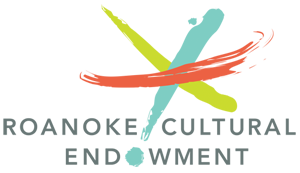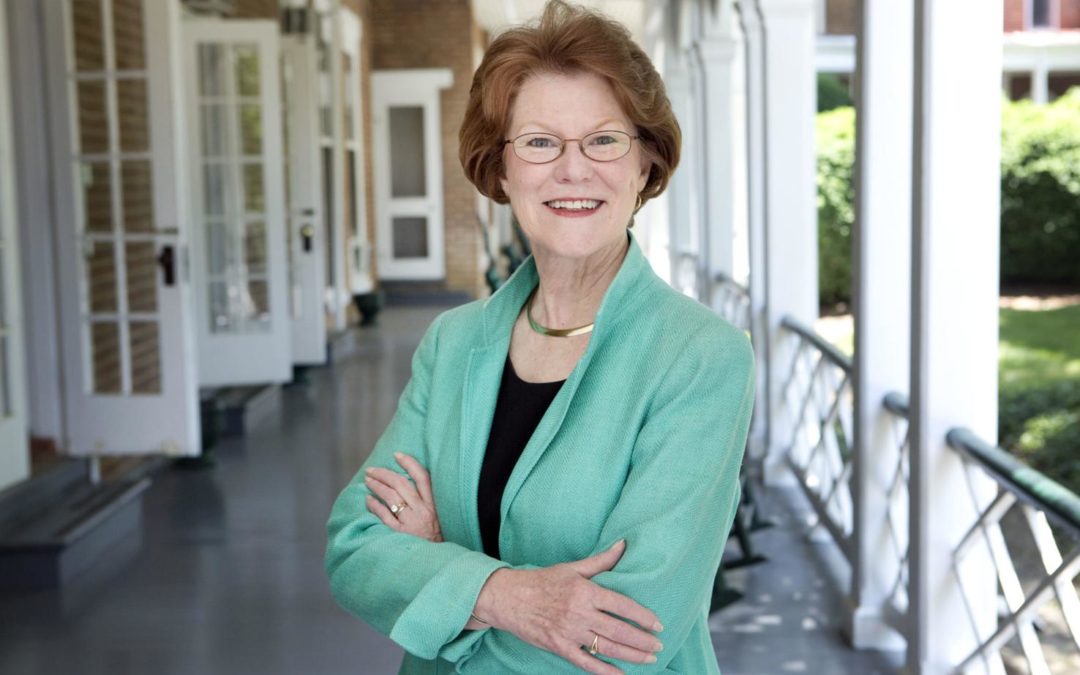Roanoke Cultural Endowment Board Member Nancy Gray has more than 40 years of experience in higher education. Many of those years were spent leading major gift and fundraising efforts for institutions of higher education and then moving on to serve as president of both Converse College in South Carolina as well as Roanoke’s Hollins University, where she served in the role for 13 years.
She now leans on these experiences in her current role as a consultant, where she advises colleges, universities, and national and local nonprofits. In addition to serving on RCE’s Board, she is also past president of the Mill Mountain Theatre Board, and a member of the boards for the Princeton Theological Seminary and the Roanoke Symphony.
At the core of her impressive resume, is an ongoing love and passion for the arts, one that she began exploring and developing from a very early age. From playing piano throughout elementary school to directing and performing holiday plays with her brother in their family’s living room, her early exploration of the arts led her to major in English and theatre where she spent her college years taking “whatever cool courses were offered and acting in one role after another.”
When asked which role made it to the top of her list of favorites, she claimed “The Rivals,” where she played Mrs. Malaprop, a character who had a habit of using the wrong word all the time.
“I do the same thing all the time, so I related to her,” Gray told us.
But when we sat down with Nancy to hear her thoughts on the importance of arts education and the impact it has on our community, we found just the opposite to be the case. Her passion for the subject and the poise and confidence she attributes to her time on stage, shined even over a virtual interview, which we’ve previewed below in this Q&A.
How has your personal background in the arts impacted you professionally?
Theatre, specifically, has been a huge influence. I think more than anything it has enriched my joy for life. I still enjoy live theatre — there is nothing like it when the curtain goes up and the lights go down. But theatre also developed so many skills that have contributed to my professional pursuits.
Teamwork is one example. Plays are a team sport. The show can’t be produced, you can’t open without the lights working, without the set being built, without the actors being on top of their game, without the box office running smoothly. Through theatrical performance, I learned about teamwork and how to appreciate the gifts and talents of every person involved in the production. I also learned about improvisation and the need to be flexible and solve problems in the moment. If one person misses their cue for an entrance or if the prop isn’t there, you have to come up with something on your feet.
And I certainly learned to develop my own confidence and comfort level being in front of an audience, but theatre also taught me how to have empathy for others. To be in character, you have to understand that character’s motivation. You have to develop greater empathy for what makes that person tick as you step into that character’s shoes for a period of time and they can be very different often from your own way of being, thinking, feeling, and interacting.
You’ve had an extensive career leading institutions of higher education. In your opinion, why are the arts an important element to the student experience?
Even though we understand the importance of career preparation for college students given how fast the world is changing, the skills students learn through formal education, in all likelihood, will be out of date or limited within a very short period of time. What’s most important is the ability to communicate, think, learn and solve problems. If you can’t express yourself well, if you can’t think critically and creatively, if you can’t continue to learn or solve problems, you are going to be at a professional and a life disadvantage.
In so many ways an individual’s ability to think both critically and creatively is further enhanced and expanded through the arts. Whether it’s interpreting a painting, experiencing an original dance performance that pushes our boundaries of thinking, or using creative writing as a means of expression, the arts have a way of encouraging us to step outside of ourselves and think beyond ourselves.
How can arts education impact our community at large?
When people choose to settle down in Roanoke, when someone makes the decision on where to establish their career, they are going to be looking for arts and culture. They are looking to see what opportunities exist in the community and how those opportunities will enrich their lives. They are also looking to see if the arts will be a part of their children’s lives.
And when it comes to education specifically, there is concrete evidence on how the arts impact our children’s educational experience, and what that means for our community long term. I’ve been interested particularly in a study that was done by the Brown Center at the Brookings Institution, where they studied the impact arts had on stimulating learning among K-12 children. In addition to seeing a decrease in disciplinary incidents and an increase in writing effectiveness in students who were exposed to the arts, they also documented increased levels of compassion for others.
Compassion is such a huge piece of all of this. The arts have the ability to build community, and that is so important right now. We live in a multicultural, international, multiracial society, and through the arts, we begin to understand each other and each other’s perspectives better than we can do without the arts in our lives. The arts bring us together.
So how are Roanoke’s nonprofit organizations playing a role in bringing our community together through arts education?
We are so fortunate in Roanoke to have many arts education programs going on in the schools, which are very strong in many cases, but often it is the nonprofits in our region helping to really enrich these experiences.
For example, the Roanoke Symphony offers the opportunity for youth to come together from all walks of life to make music together. For many students, that’s given them a huge enrichment to their education in schools. It’s given them a way to relate to people differently and for some of them, it has given them an identity that goes beyond what can be offered in their schools and as they perform.
Similarly, I think of Mill Mountain Theatre and the performances they make available to school-aged children. They did Glass Menagerie not very long ago, in part because it was in the schools’ curriculum. Students could come to see the play they were required to read for credit. It’s one thing to read a play that can be difficult to understand or relate to, but when you see it come alive in a performance by equity-level actors, all of a sudden you’re relating to that material through a memorable experience and in a way that you might not otherwise.
Those are just two examples, but the list goes on and on. I can think of so many ways in Roanoke where our arts and culture organizations are fostering individual growth in our young people and adults alike and how they are bringing us together as a community, no matter our age. Whether it’s through performance and music, or through street art and cultural festivals, I think there is a really intentional effort right now in our community by all of the arts organizations. We are learning about diversity, inclusivity, and equity and how that applies to the arts. We’re choosing plays, music and artistic endeavors that are accessible to everyone in Roanoke, and that ultimately translates to more ways for our community to learn compassion and empathy for others.
What challenges lie ahead for these organizations and their ability to offer opportunities of enrichment to our community?
The people who work at these organizations are incredibly committed people. They are doing what they do because they believe in it so strongly and they are passionate about what they do. Many of them are multi-tasking and working without enough staff. Some of these people are struggling because the salaries are not as high as any of the Board members would want them to be nor are the benefits as generous. So the people doing this work are doing it simply out of a deep commitment to the arts and a passion for what they do.
That is so hard to sustain year over year, and so I think financial stability and sustainability is the biggest challenge each of these organizations face. That’s why a strong Roanoke Cultural Endowment is so important. It will provide a permanent source of funding that will persist in perpetuity. These organizations will be able to tap into additional income when RCE reaches our $20 million goal and can award 5% of the endowment income annually in grants, approximately $1 million. Such support enables these organizations to breathe a little more deeply. It allows them to be more creative in their programming. And for the Roanoke community more broadly, it ensures that these organizations and the artistic endeavors that they contribute will be secure and permanently ingrained in our community.

